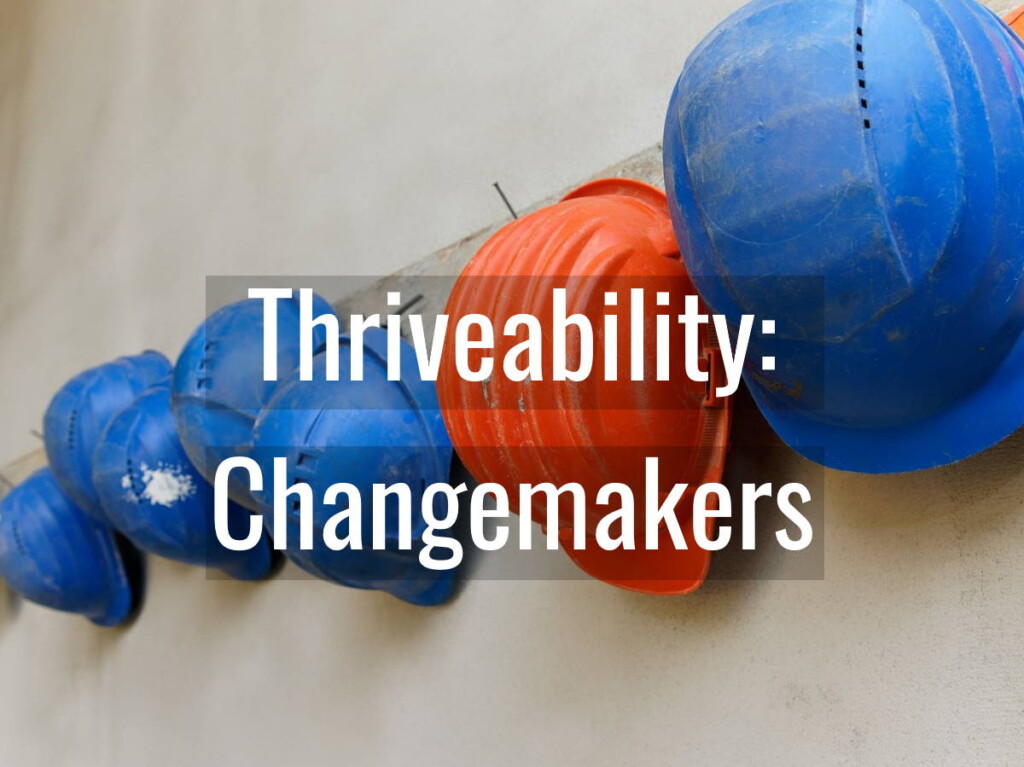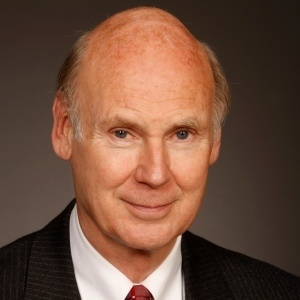Tourism’s thriveability requires performative change: The changemakers

If we were to boost tourism destinations’ capacity to thrive, who are the likely changemakers? And what actions might they take? K Michael Haywood offers answers in this “Good Tourism” Insight.
[You too can write a “GT” Insight.]
In the first part of this article, “Tourism’s thriveability requires performative change: The foundations”, I laid out some basic requirements for communities-as-destinations to thrive.
However, there is a need for changemakers — tourism leaders, destination management and marketing organisations (DMOs), and educators — to contextualise the details, start doing, and be held accountable.
Thriveability requires the orchestration of transformative change.
Tourism leaders
Post-COVID, the push for reviving travel and tourism represents a flurry of activity as everyone struggles to reach and exceed pre-pandemic volumes. However, the trajectory and transition toward thriveability, from mediocrity to magnificence, demands changes in how business is done and the type of value created.
Read other “GT” posts tagged with
“Travel & tourism industry policy and governance”
Leaders from all walks of life now have to re-think their responsibilities to communities-as-destinations, even to their own enterprises. To do so they must:
- Acknowledge, visualise, and act as if their organisations, enterprises, and communities are living systems affecting living systems;
- Adopt “longpath” mindsets in pursuit of egalitarian futures;
- Prioritise more life-affirming value creation in pursuit of magnificence and meaningfulness that requires generating net-positive value;
- Legitimise tourism’s social licence and the contractual obligations of organisations by honouring all covenantal relationships with stakeholders, thereby ensuring healthy economies;
- Develop healthier work and community environments;
- Revise outmoded human resource (talent) management practices and jettison the notion of hiring “the handy, cheap and willing”;
- Align workers with purpose and create the opportunities that will allow people to pursue and realise their own sense of purpose; and
- Commit to diversity, equity, and inclusion.
The leadership challenges and imperatives of our time are immense. People have to be brought together. Forward progress has to be energised. Tourism and communities-as-destinations must be reimagined.
Destination management and marketing organisations
Thriveability might never have been an initial intent, but Destinations International’s promotion of Community Shared Value could be conceived as a prerequisite for DMOs becoming recognised as the guardians of their communities-as-destinations.
Read “GT” posts tagged with
“Travel & tourism and destination management”
It augurs well, so long as DMOs adopt an evolutionary change of mandate from marketing to management. But, if DMOs ever hope to become vanguard organisations in charge of creating public value from tourism, they will have to defer to the priorities of their communities-as-destinations.
Success in advancing convergence among stakeholders whose interests, livelihoods, and well-being are tied to or affected by tourism, will be dependent on how well DMOs:
- Promote and practise collaborative leadership, especially with the public sector and civil society;
- Understand what the thriveability of communities-as-destinations entails;
- Consolidate the goals of communities, governments, businesses, love, and life;
- Rethink strategy as the means to overcome the obstacles that stand in the way of what communities-as-destinations want to achieve, thereby avoiding the social contagion of bad strategy;
- Evaluate tourism, its performance and impacts, in all communities or regions (as proposed by The World Centre for Excellence for Destinations);
- Seek prosperity that provides life-affirming value over the sort of economic growth that contradicts such value (represented by calls for tourism’s de-growth);
- Work diligently to ensure the best conditions for entrepreneurial success;
- Develop purpose-driven marketing and branding programs;
- Replace systemic barriers and bureaucracy with humanocracy;
- Allocate essential resources to ensure the health and thriveability of communities-as-destinations that extends beyond the requirements for marketing; and
- Create scorecards to monitor and measure the degree to which all elements of value are being achieved within both the private and public sectors.
The idea: To broaden and deepen the mandates for DMOs to coincide with the desired purpose of communities-as-destinations. To accelerate the implementation of their community-minded mandates and, thereby, avoid the so-called redundancy of DMOs.
Tourism educators
As leaders and participants in our communities-as-destinations, we are all active in creating and sharing knowledge, determined in our desire to do good, to do better.
Read “GT” posts tagged with
“Travel & tourism education and training”
In this regard, we are grateful for those who provide witness to tourism’s impacts and the severity of its excesses.
However, in our quest for thriveability, everyone’s responsibilities for teaching and researching, communicating and consulting, must be taken to new heights. This is doable if we are willing to:
- Evaluate and clarify the concept of ‘Community Shared Value’, address and overcome any shortcomings, and help set the stage to ensure its implementation;
- Join, if not help start, Destinations-in-Action Networks and community shared value coalitions;
- Reach out to, and inform, all stakeholders about our research on and desire for performative change;
- Promote the need for destination innovation hubs and involve educators;
- Form and work with local or national ‘Tourism Human Resource Councils’;
- Localise the Tourism Education Futures Initiative (TEFI) and work with industry partners to bring progressive educational opportunities to younger generations and those in employment;
- Undertake detailed evaluations of existing hospitality and tourism education programs with key stakeholders;
- Create more radical student learning-by-doing through experiential projects;
- Integrate humanistic principles into tourism education;
- Create destination management programs based on concepts such as whole brain thinking, design thinking, and peer learning (Coaching Ourselves); and
- Develop social, cultural, environmental, economic, business, and creative intelligences among students and destination stakeholders.
Everyone?
Imagine everyone:
- Working within future-forward frameworks for travel & tourism, based on the self-organising properties typical of human ecological systems;
- Creating futures based on catalysing their immense gifts for imagining; and
- Exerting their will for the continuance of life.
You?
What are you, your organisations, and your institutions going to do NOW to ensure divergent stakeholders converge into an emergent whole; form dynamic relationships; and undertake a transformation of tourism so that it whole-heartedly contributes to achieving what our communities-as-destinations desire?
Also see other “GT” Insights written by K Michael Haywood
As your changemaking momentum builds and your efforts at performative change provide evidence of better outcomes for your organisation, destination, and its stakeholders, I would encourage you to showcase and share your experiences and achievements on The “Good Tourism” Blog.
The world will be grateful.
What do you think? Share a short anecdote, comment, or question below. Or write a “GT” Insight of your own. The “Good Tourism” Blog welcomes diversity of opinion and perspective on travel & tourism because travel & tourism is everyone’s business.
Featured image (top of post): Tourism’s thriveability requires performative change: The changemakers, Base image by Paul Diaconu (CC0) via Pixabay.
About the author

K Michael Haywood is Professor Emeritus, School of Hospitality, Food and Tourism at the University of Guelph in Ontario, Canada. Prof Haywood has recently written an e‑book “Astonish, Smarter Tourism by Design”. Find Michael on LinkedIn.





